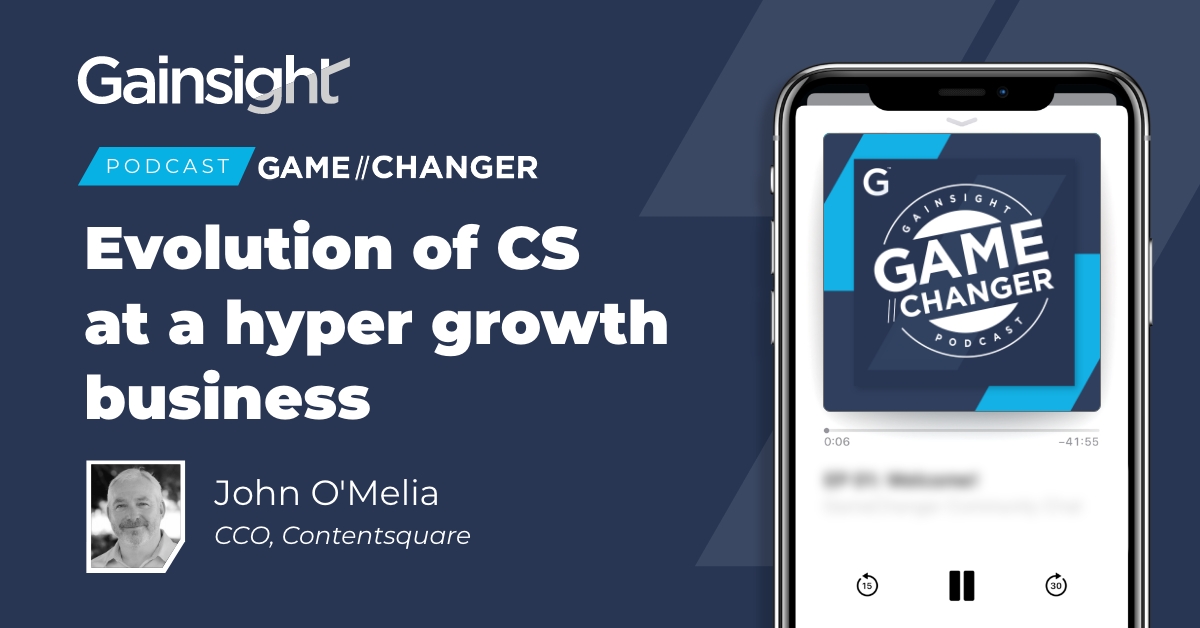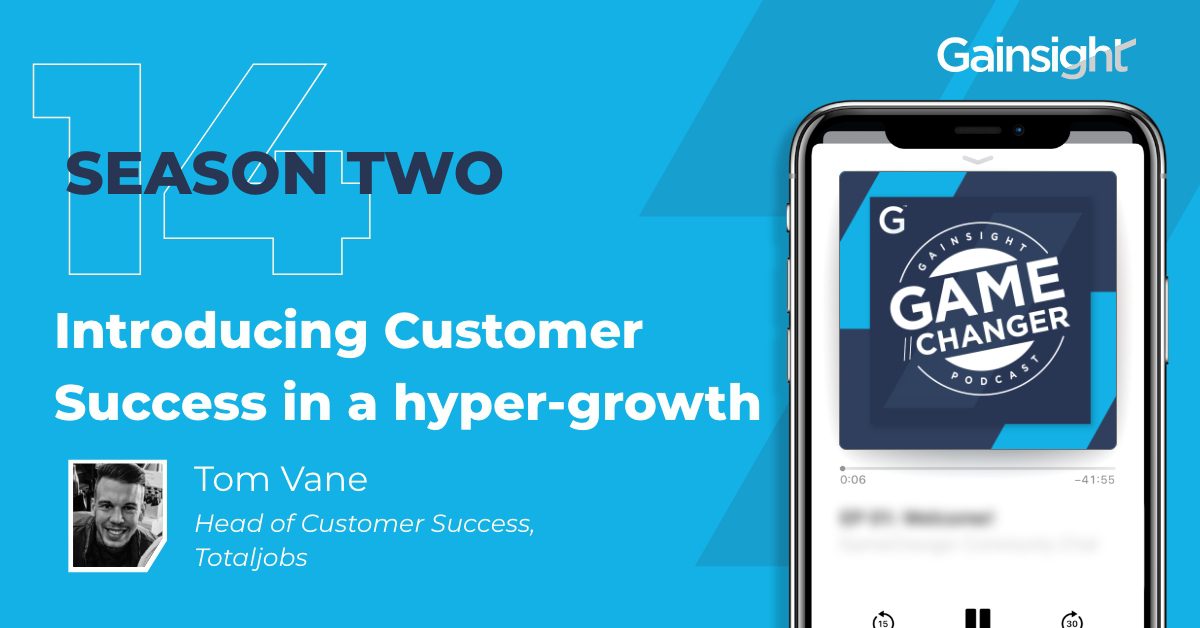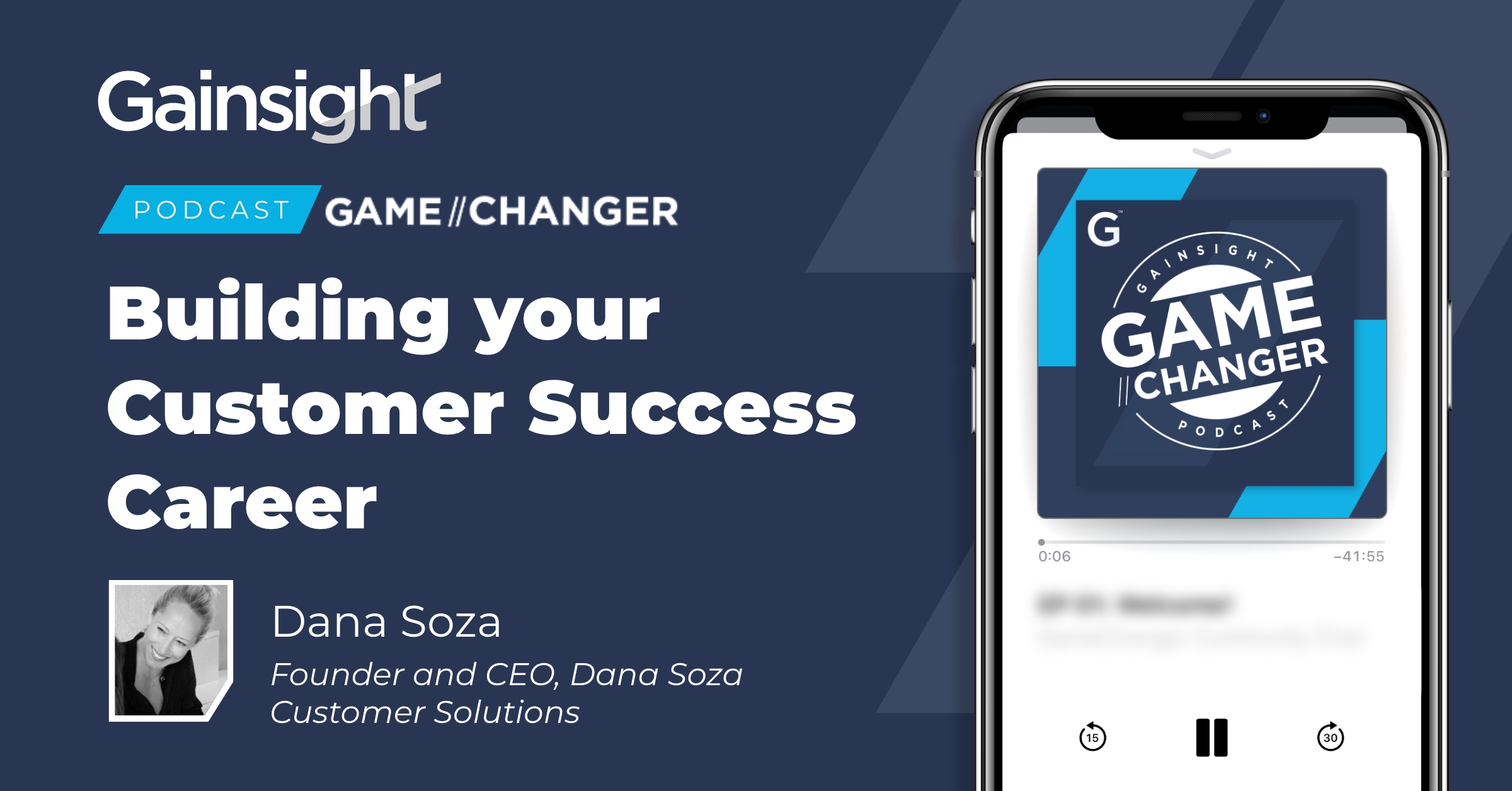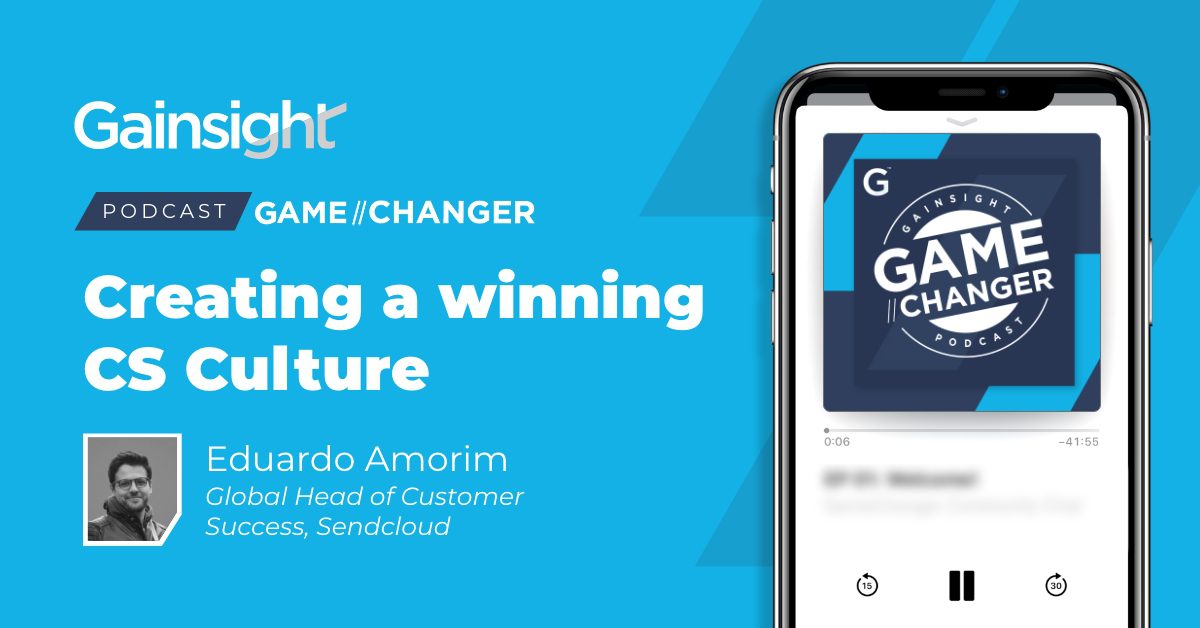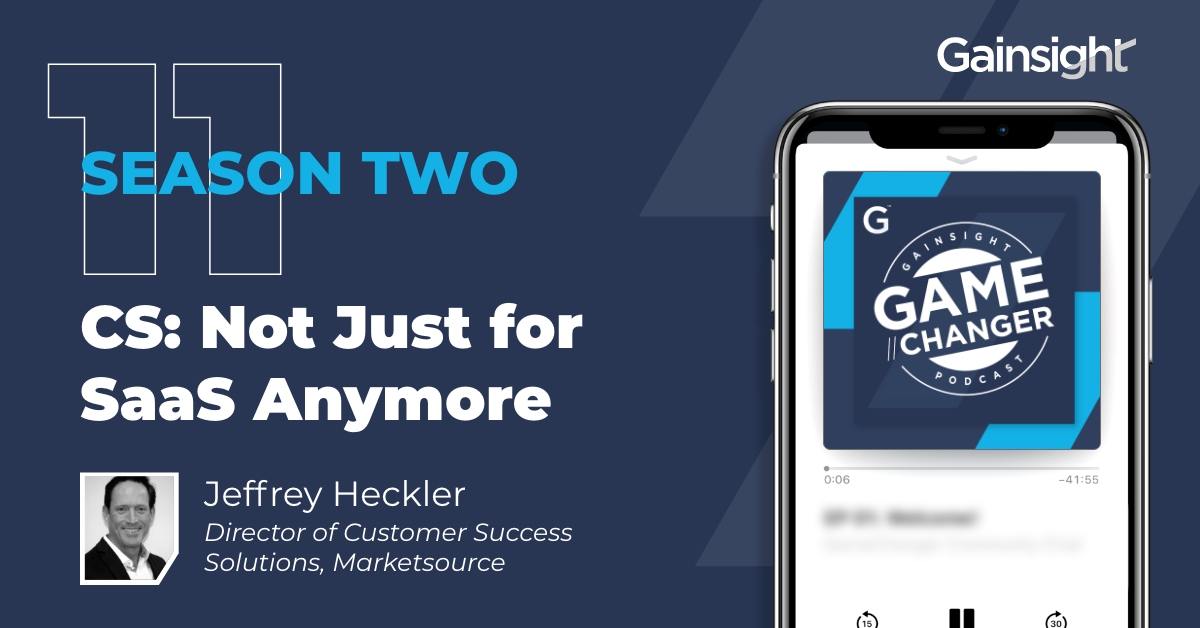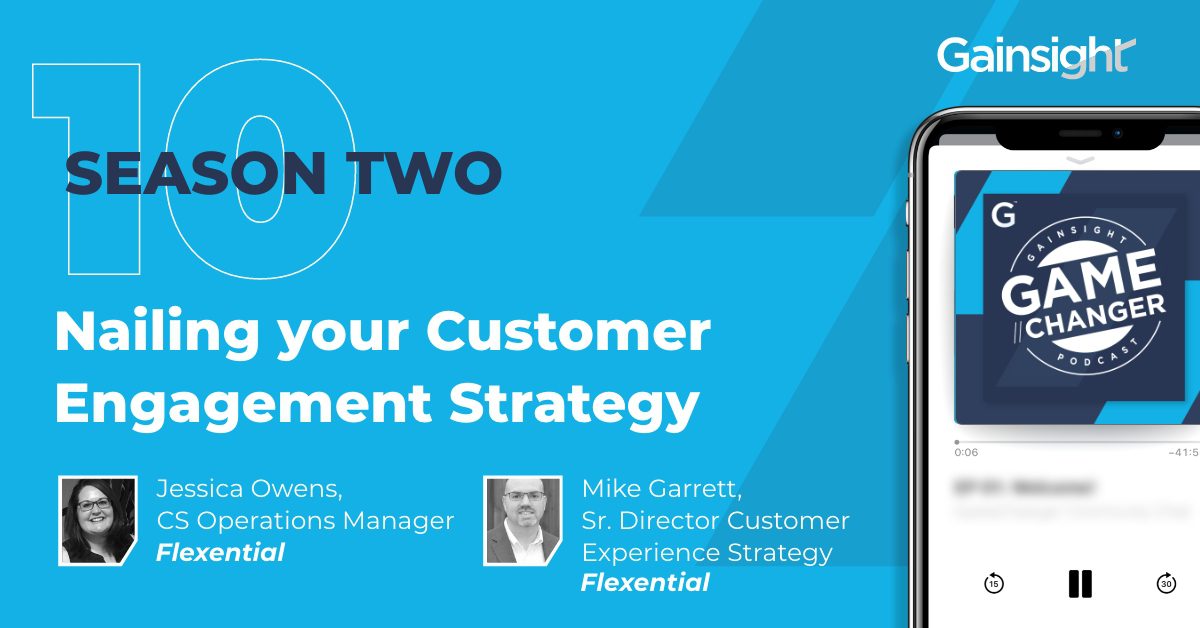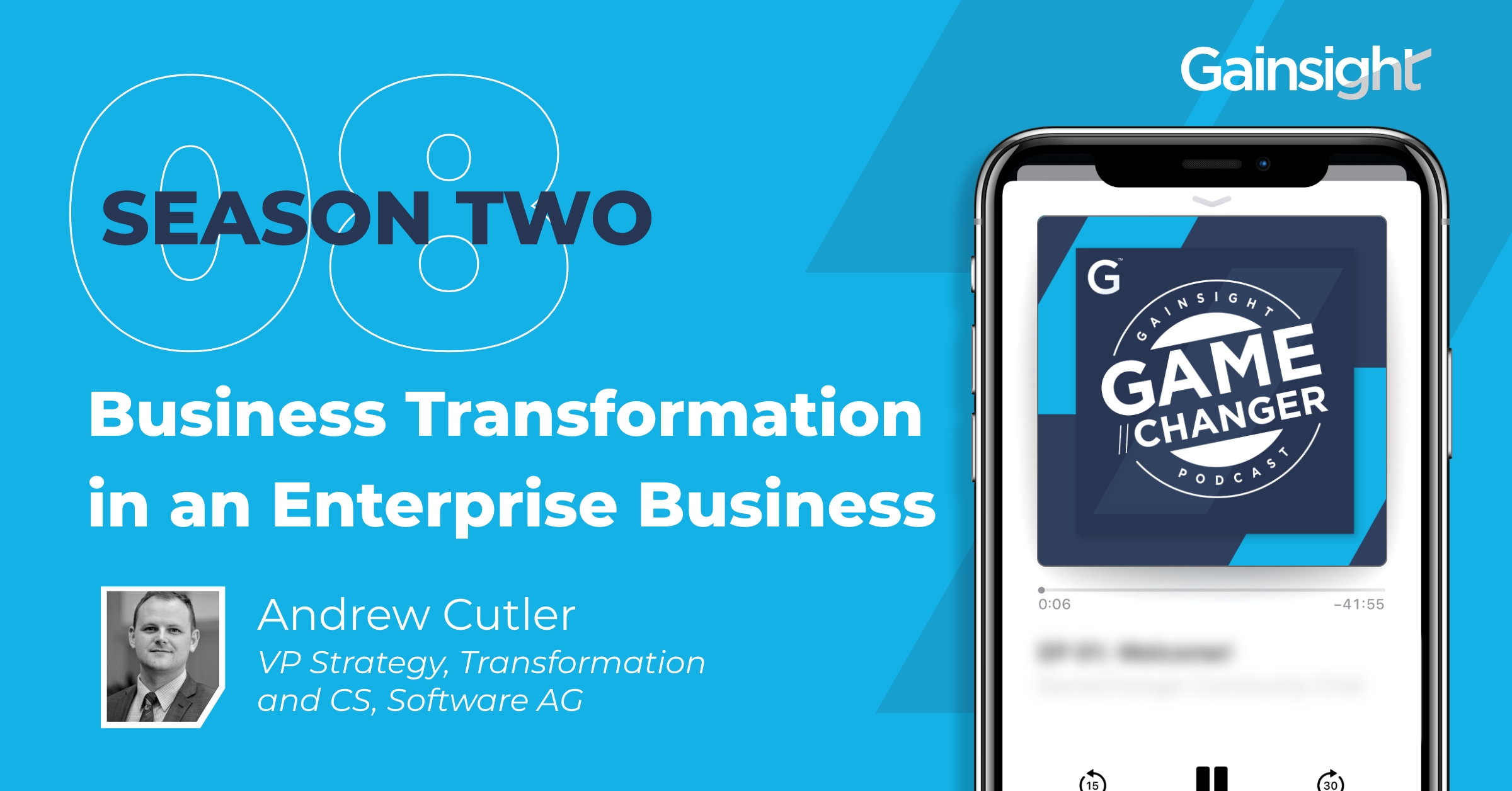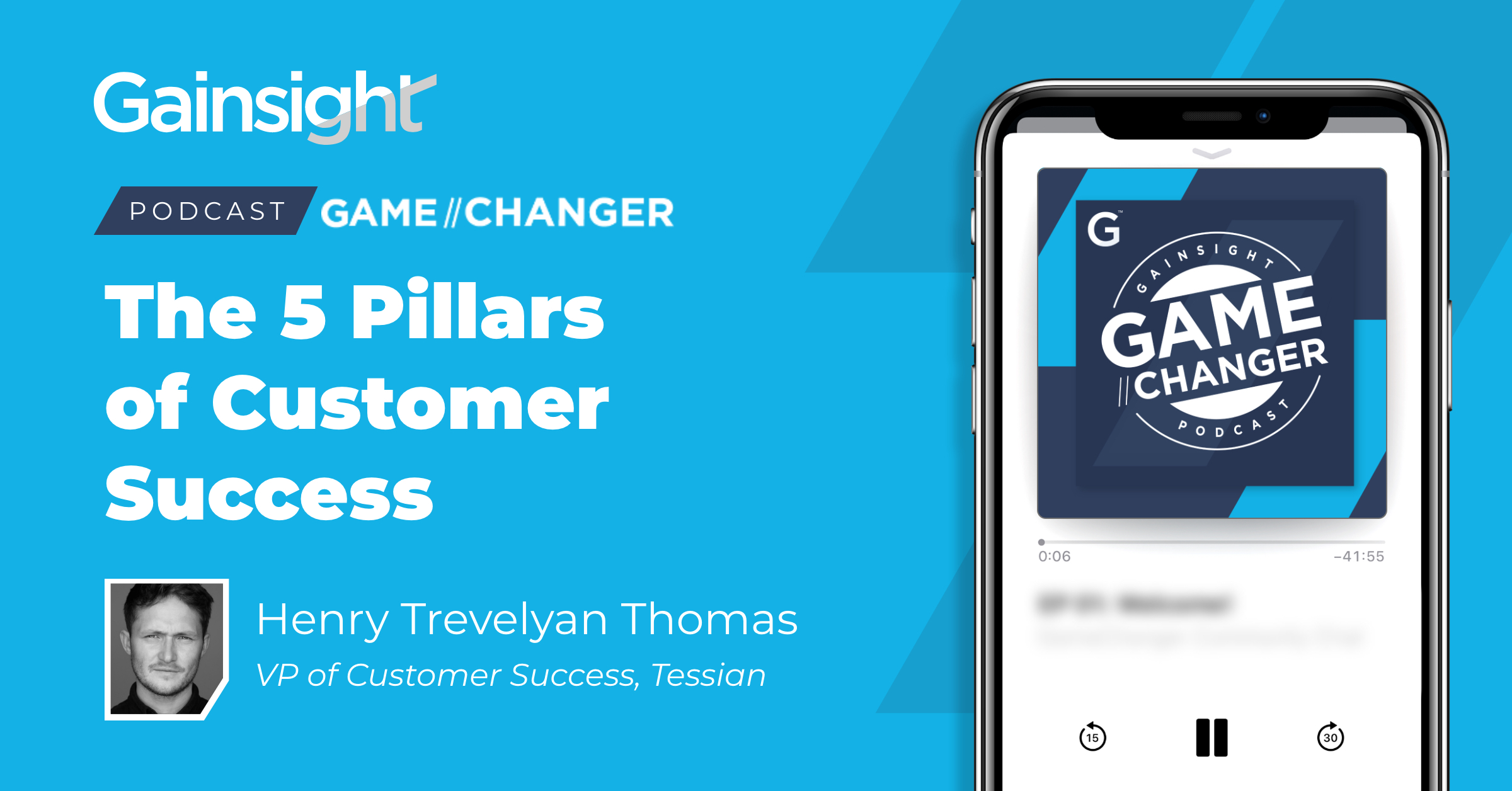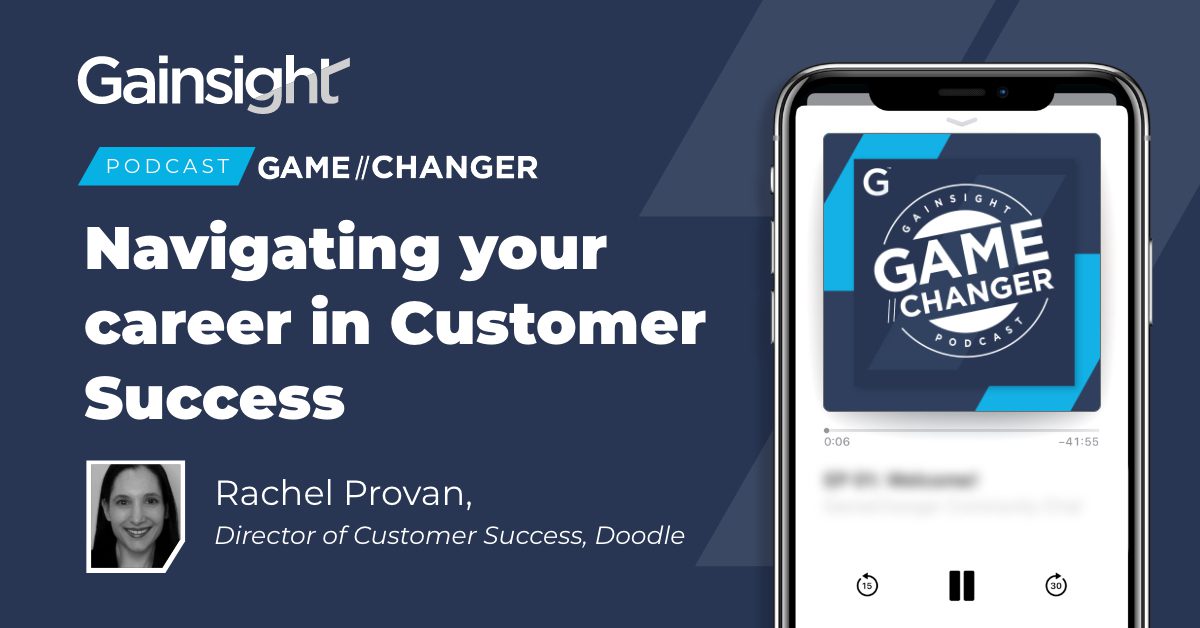In episode 1 of the Gainsight Gamechanger Podcast, Adam Joseph, Director of Customer Success, EMEA at Gainsight sits down with Jonathan Corrie, Co-Founder & CEO of Precursive.
Listen to the full episode and access Adam's summary by unlocking the content.
Subscribe today on: Apple Podcasts | Spotify | Google Podcasts
Ep 01: Customer Success And The New "Remote Reality"
Earlier this year, I started the Gainsight Game Changer Podcast. This is not my first venture into podcast interviews. From 2017 to 2019, I recorded podcasts under the name of Customer Success Conversations. I was joined by several guests from all over the world and all levels of professions, from entry-level CS to CEOs.
Now, I am on a quest to discuss not just the fundamentals of customer success, but how CS is evolving and advancing. I want to explore topics such as workflows and processes, startups and enterprise business, the ever-changing role of technology in business, and anything current and pressing at the moment.
In my first episode, I was joined by Jonathan Corrie, co-founder and CEO of Precursive, a software company known for improving customer onboarding, project management, and professional services automation. When Jonathan and his co-founder set up Precursive, they believed that the best companies help customers realise value quickly, thus leading them to stay for life. He also discovered that part of the customer success process is creating a positive work environment for his teams. Employees that are valued pass on their experience to customers. In our conversation, Jonathan shared advice that he gives his team members about how to adjust and stay positive in what he terms as the New Remote Reality.
CS is Coming to the Forefront During Crisis
We're in a really interesting time. Not only personally but professionally, and especially in the world of customer success. With all of the challenges that COVID-19 has brought, customer success has come into the forefront universally. We are seeing trends from an organisational perspective that CS is even more important than ever before. There are also changes in messaging from some of the world's largest companies indicating a shift. Customer success as a strategy is now being talked about in the same terms as Sales. Jonathan Corrie agreed.
[minti_blockquote]It sounds weird to say, but it's [customer success] the place to be now because everyone across different industries has been looking at these recurring business models.[/minti_blockquote]
Indeed the SaaS model is being adopted across numerous industries outside of technology. For many businesses, they're generating more revenue from existing customers than from new customers. Of course, there are exceptions to this, especially if you're Zoom or Slack. However, over the last few years, the cost to sell to new customers has been increasing. That is absolutely the case in the B2B market or if your company has longer sales cycles. The volume for new business is going to be down for many companies in 2020. Making the most of what you have is critical. This is where customer success comes in.
For companies, especially those in software, telecom businesses, and professional services firms, customer success is now at the heart of their strategy. It doesn't matter if a business is new to CS or practicing it for a while. It is what they're living and breathing right now.
Customer Success Filling in the Function Gap (Whilst Avoiding Burnout)
What is being discovered is that CS and professional services teams are potentially filling in for a product gap. They're helping companies where products may be too complex. Perhaps the UI or UX is coming up short. That's where Customer Success teams aid in training and adoption. The role of CS ensures that your product line and strategy is keeping your customer. That strategy, though, is changing tremendously and quickly. Jonathan explained.
[minti_blockquote]Not having someone in the business that's aligning with your customer strategy and just hoping that your product or your service is going to be good enough is a little bit shortsighted. That's my take on it.[/minti_blockquote]
There's an increased focus when it comes to customer success in the global downturn. You need to be close to your customers. It can be tough to get new business deals over the line. It is critical, then, that companies ensure and keep growing existing customers. With increased focus comes increased pressure. Being in the customer success professional role and trying to manage what Jonathan terms as the "new remote reality," whilst maintaining a work-life balance is difficult. Jonathan offered insights for those struggling with the pressure to ensure that they're working proficiently, efficiently, and avoiding burnout.
"It's a very new reality that we're all dealing with, in our personal lives, and our professional lives. I think the first thing I would say is that there needs to be a balance." Jonathan is right. Burnout is the number one thing we are all fighting. As managers and the leaders of companies, we need to set the right culture and balance. He added, "Because we don't live to work. It's the other way around."
Jonathan explained that people in Customer Success and tech are very diligent and hard-working, but sometimes they don't have a work-life balance. "The number one thing to communicate with the team is that it's okay not to be 'on' all the time." Jonathan believes that rest is a priority. "Take a few hours off in the middle of the day. Just do what you need. You've got to make sure that it's okay that people understand that." He also stated that it is critical for anyone in a customer success or a customer-facing role to realise that their time is as valuable as their customers.
You Can't Fake Culture
Creating a work environment where you have balance starts with leadership. Those at the top must have the right message, but they also have to model the behaviour. Jonathan made the point that you can't fake culture. I think a truth in culture epiphany will be happening to quite a few companies. Their value systems will be found out, especially in a time of crisis. He mentioned that we have all seen the framed prints with inspirational pictures and sayings. Just because you put it up on a wall, in a poster, and talk about it at a sales kick-off for success, doesn't make it permanently embedded in your company. I think there will be businesses out there whose culture will be tested, especially with this new remote reality.
[minti_blockquote]On the other hand, I think that it's those values that should ground you and bring you and bind you together. I try to reference them internally on how they inform my decision making in very specific situations with customers or with the team. It reminds the team that we're not just making this stuff up.[/minti_blockquote]
Setting a cultural tone takes time and commitment. Wavering from values can lower morale and create turnover. Jonathan was particular about what Precursive chose as their values. "We didn't just do a Google search and pick ten values that we saw that we liked across different companies and then tweak them a little bit," he said. "We thought about them and worked on them and sharpened them over time." Being purposeful for Jonathan and his team started with which values they wanted to represent them as an organisation.
"One of ours is to assume good faith," Jonathan said. "That's one of our key values. And when people join [our organisation], the first conversation I have with them is about the values and the culture of the business. I ask them because I'm not generally the first person that they've spoken to. I definitely would have interviewed them. But I ask them, "From what you've seen thus far, are you seeing some of the values that you've read about before you've joined the business?" They'll typically say 'yes,' which is good."
The New Normal Way
There is something to be said about taking your company values off the wall and adopting them every day. Company values and culture have to mean something. We are fortunate that Gainsight's leadership embraces and promotes what is called the human-first approach. It is one of the reasons why so many employees are drawn to join Gainsight. But even the best companies' cultures are examined and refined through the crisis. When asked about this, Jonathan responded, "I think every company has its values, and now they really are being tested. And maybe what will come out of this actually is a new set of values. And a new way of looking at the world."
Jonathan's words offer a bit of hope in a time of adversity and change. If we examine history, we shall see that out of adversity comes a chance for advancement socially, economically, and certainly technologically. Maybe we shouldn't seek to return to the way things were. Perhaps in our home and work, we should seek to devise environments of productivity and creativity. When asked about a return to "normal," Jonathan explained it this way. "I often get asked when do I think things will go back to normal? When I think what normal was, what we knew before, probably won't exist anymore. I think we're all going to have to adapt to a new normal way." If this is true, may it be the best of what we can offer and create is in the "new remote reality."
[minti_divider style="1" icon="" margin="60px 0px 60px 0px"]
Want to join the conversation? You can do it by:
- Leaving a rating and review on Apple Podcasts, Spotify, and Google Podcasts
- Engaging us on Twitter, Facebook, or LinkedIn
- Commenting below!
